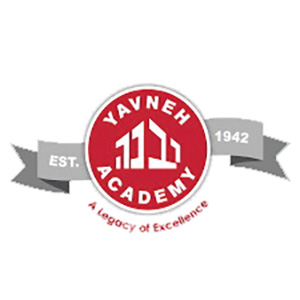


Holistic is a term we usually hear in connection with medical or integrative health care, not education. An increasing number of schools and university-based professional educational preparation curricula, however, have begun adding emotional health components to their programs.
Yavneh Academy of Paramus has done just that in rolling out its pilot program called The Foundations Program. Yavneh views the program as a “holistic partnership” with its existing curriculum. Through this approach, Yavneh adds to and builds upon its already comprehensive mission, including the “commitment to social and emotional well-being of the Yavneh students.”
One of the guiding principles in Yavneh’s Foundations Program comes from the Torah lesson, “Love thy neighbor as thyself,” and is elucidated by Rabbi Dr. Abraham Twerski in his book “Let Us Make Man.”
“Without appropriate self esteem and self-appreciation, one is truly not capable of loving another person,” Rabbi Twerski writes.
Further support for programs of this type can be seen in the words of the inimitable Fred “Mr.” Rogers: “I’m convinced that when we help our children find healthy ways of dealing with their feelings––ways that don’t hurt them or anyone else––we’re helping to make our world a safer, better place.”
Yavneh’s pilot program combines many principles. Social-emotional learning is the umbrella concept, and there are numerous types of SEL curricula.
The National Education Association gives the following definition of SEL: “Social and emotional learning is the process through which children and adults acquire and effectively apply the knowledge, attitudes, and skills necessary to understand and manage emotions, establish and achieve positive goals, feel and show empathy for others, establish and maintain positive relationships and make responsible decisions.”
While it has long been understood that self esteem is at the core of one’s relationships and overall success in life, it is also true that self esteem has been largely ignored or bypassed by formal education for most of its history. One study done in the 1980s is cited by Jack Canfield, co-author of “Chicken Soup for the Soul,” in one of his early lectures on peak performance and self esteem. In the study, parents and teachers were surveyed to identify who was responsible for the self esteem of the child. Eighty percent of each group responded that it was the responsibility of the other. The study concluded, therefore, that neither the parents nor the teachers were attending to this essential component of child development.
Enter Natalie and Davidi Jonas, who believe that the responsibility is shared and dwells in both domains. Natalie is an early childhood educator, and believes deeply in child-centered learning that fosters social and emotional sensitivity. Davidi was CEO of Straightpath Communications, a wireless communications company that was acquired by Verizon in 2018. The Foundations Program, a brainchild of the Jonases, was conceived in December of 2018. After developing the concepts over several weeks of thought and consideration, they proposed the idea to Rabbi Jonathan Knapp, the principal of Yavneh, in January of 2019.
“At our first meeting Rabbi Knapp almost jumped out of his seat with excitement at the idea, and a partnership was born,” Natalie said. The Jonases are fully funding the program, including staff training.
“By February we were absolutely comfortable piloting in pre-K and kindergarten and, within the week as potential constructs began to clarify, we committed to four grades, pre-K through second grade,” she said.
In March Shira Lisker joined as director, credentialed with a bachelor’s from Yeshiva University Stern College in Early Childhood Education, and a master’s in education in conjunction with the PELE Chinuch Fellowship at YU’s Azrieli graduate school. She became a thought partner with the Jonases and helped research and create the model for SEL in the pilot classrooms. Lisker’s inspiration came in part from what she described as, “the incredible PELE Fellowship at Azrieli.”
Natalie reported the following story from the second grade class morning meeting:
“The children talk about all sorts of useful character traits,” she said, “Last week they looked at plastic straws and noticed that they can bend. They spoke about how people can bend too- physically, as well as emotionally––by being flexible. A day or two later a child came in to school and reported to the teacher that she was expecting a certain meal for dinner the night before, and she was really upset when that was not served. Rather than get angry like she may have in the past, she told the teacher that she had been able to be flexible, and eat the other dinner without making a fuss. She was so proud of herself, and so were her teachers.”
The second part of the program,” said Natalie, “is a study of the emotions as a group and individually. Each class has a ‘calm space/Zen zone,’ where children can go when they need a minute…or three to re-center/recalibrate/calm down. In each one of these spaces is a Generation Mindful poster that guides the children through recognizing their emotions, and choosing a strategy for calming down via daily interactions with the space and these concepts. It becomes part of their language, and God willing, the parents’ language. When the kids, parents and teachers work in unison, the children do best.”
Yavneh Academy, through this new program, is on a trajectory to guide and educate children with a comprehensive set of educational, social and life skills that will serve them throughout their lives, including the essential tools of adapting responses to particular situations.
Additional information on the Yavneh Foundations Program, including downloadable resources, is available on the website: https://www.yavnehacademy.org/
By Ellie Wolf









